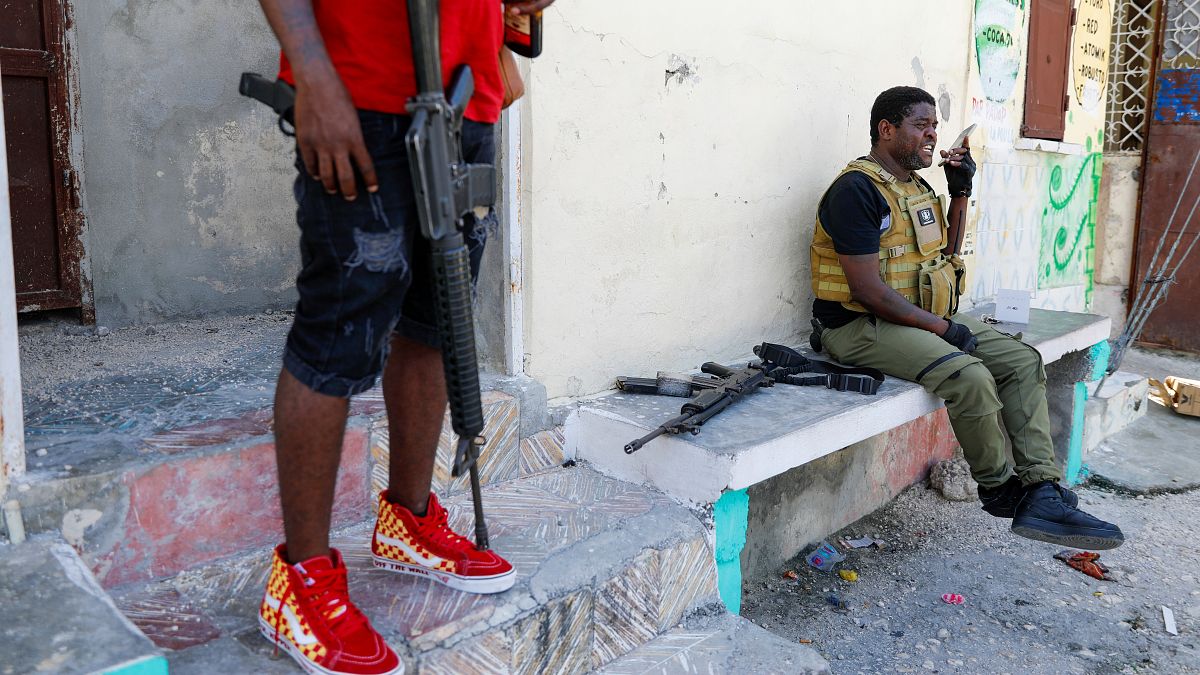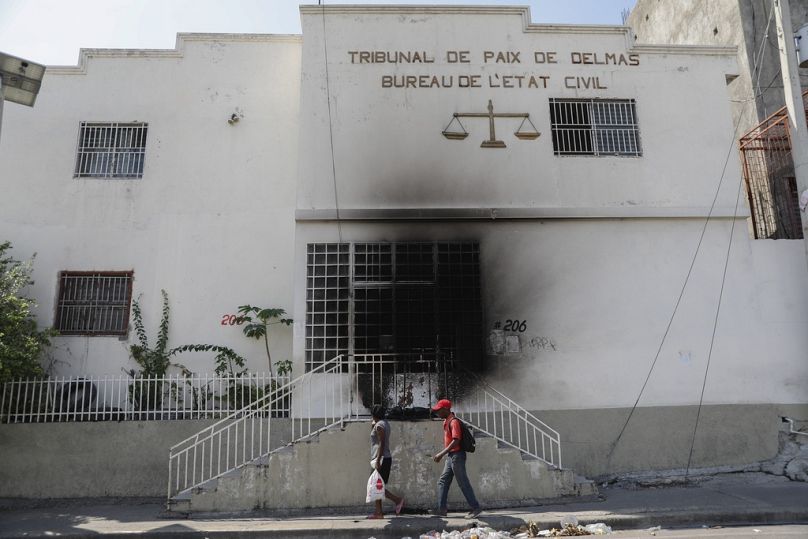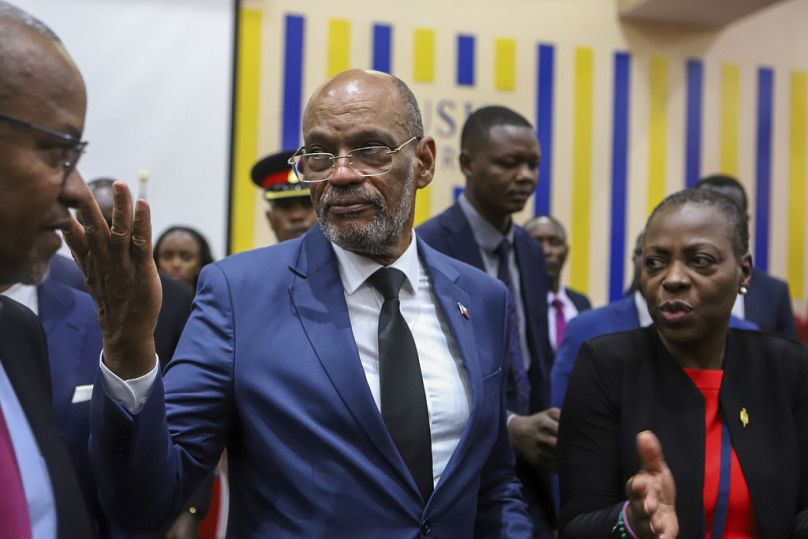
Haitian politicians started pursuing new alliances Wednesday, seeking a coalition that could lead the country out of the gang violence that has fuelled lawlessness, closed the main airport and prevented embattled Prime Minister Ariel Henry from returning home.
One new political alliance involves former rebel leader Guy Philippe and ex-presidential candidate and senator Moïse Jean Charles, who told Radio Caraïbes on Wednesday that they signed a deal to form a three-person council to lead Haiti.
Philippe, a key figure in the 2004 rebellion that ousted former President Jean-Bertrand Aristide, returned to Haiti in November and has been calling for Henry’s resignation. He spent several years in prison in the US after pleading guilty to a money laundering charge.
Haiti remained largely paralysed, with schools and businesses still closed amid heavy gunfire blamed on the gangs that control an estimated 80% of the capital, Port-au-Prince, where several bodies lay on empty streets. The country’s two biggest prisons were also raided, resulting in the release of more than 4,000 inmates over the weekend.
UN human rights chief Volker Türk urged “the international community to act swiftly and decisively to prevent Haiti’s further descent into chaos. Last weekend’s mass prison breakout has been described by Haitian officials as a lethal threat to national security.”

Henry faces increasing pressure to resign, which would likely trigger a US-supported transition to a new government.
Meanwhile, the US ambassador to the United Nations was asked Wednesday whether her government had asked Henry to step down.
Linda Thomas-Greenfield replied that the US has asked Henry to “move forward on a political process that will lead to the establishment of a presidential transitional council that will lead to elections.”
American officials believe it’s urgent for Henry to start “the process of bringing normalcy back to the people of Haiti,” she said.
Shut out
Prime Minister Henry has not made any public comments since gangs began attacking critical infrastructure late last week while he was in Kenya pushing for the UN-backed deployment of a police force from the East African country to help fight the surge in violence in the troubled Caribbean nation.
Before flying to Kenya, Henry was in Guyana for a summit held by a regional trade bloc known as Caricom, where Haiti was high on the agenda.
Meanwhile, a Caribbean official told The Associated Press on Wednesday that leaders of Caricom spoke with Henry late on Tuesday and presented several alternatives to end Haiti’s deepening crisis, including that he resign – a suggestion he reportedly rejected.
Henry landed Tuesday in Puerto Rico after he was not allowed to land in the Dominican Republic, where officials closed the airspace around Haiti. Héctor Porcella, director of the Dominican Institute of Civil Aviation, told reporters the plane did not have a required flight plan.

The Dominican Ministry of Foreign Affairs said in a statement Wednesday that US and Haitian officials informally contacted it to inquire about the possibility of Henry’s plane making an “indefinite stop” in the Dominican Republic, adding that the prime minister was in New York at the time.
The government said it twice told foreign officials that such a move would require a defined flight plan.
“It is essential to note that the Dominican Republic maintains its willingness to continue cooperating with the international community to facilitate Haiti’s return to normalcy. However, it is imperative that any action taken does not compromise our national security,” the foreign affairs office said.
Dickon Mitchell, prime minister of the eastern Caribbean island of Grenada, told the AP that regional leaders spoke late Tuesday with Henry, who did not indicate anything except “that he is trying to get back into Haiti.” Mitchell did not provide details.
Henry was appointed prime minister with the backing of the international community shortly after the July 2021 assassination of President Jovenel Moïse.
As he tried to return to Haiti on Wednesday, heavy gunfire echoed throughout Port-au-Prince as Haitians feared additional attacks led by powerful gang leaders.
It was not clear when the country’s international airport would reopen.





